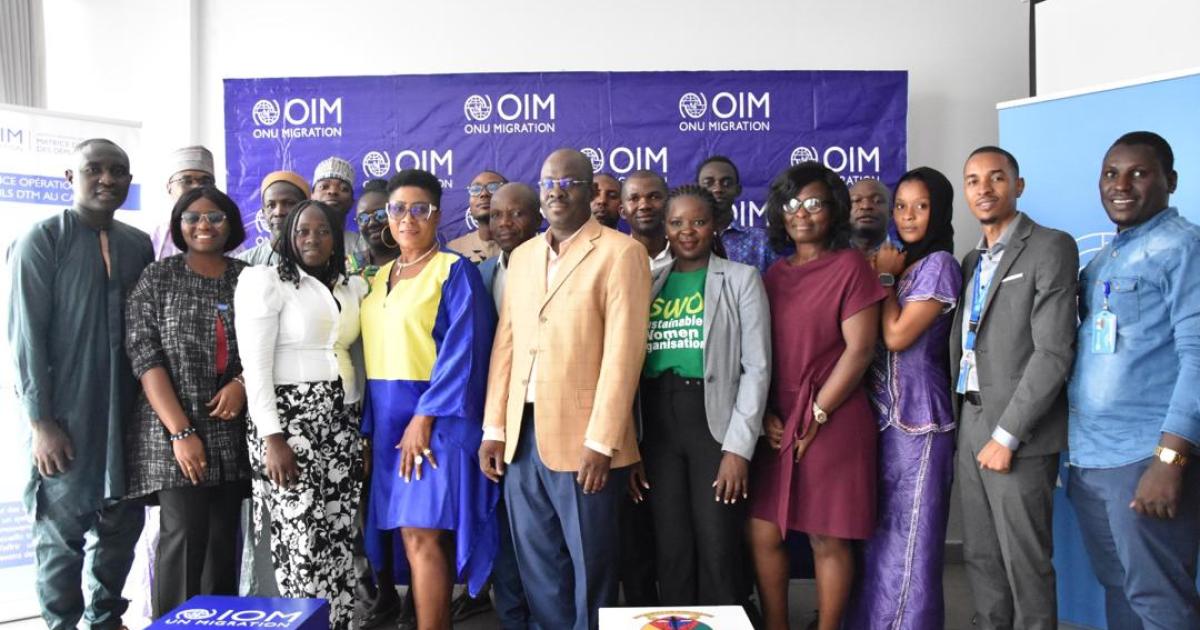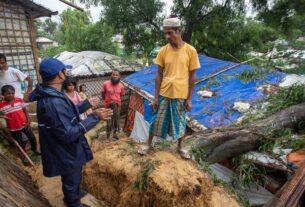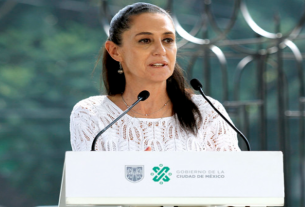Yaoundé – On 19 and 20 June 2024, IOM provided the Cameroon Humanitarian Organisations Initiative (C.H.O.I) with a workshop to help them gain an in-depth understanding of SPHERE standards and multi-sectoral needs assessment methods. The aim was to increase the effectiveness of humanitarian action while strengthening resilience. With the move towards a localised approach to aid, national civil society organisations (CSOs) are increasingly being asked to play a key role in the distribution of humanitarian assistance.
Based on the principles set out in the SPHERE handbook and the Humanitarian Charter, during this workshop IOM improved the skills of national CSOs on several key concepts: needs assessment; humanitarian principles; essential humanitarian standards; coordination; programming cycle; protection against sexual exploitation and abuse, etc.
In his address to the participants, Mr Tafsirou BOCOUM, DTM Officer at IOM, underlined the importance of their role and knowledge of the field in the following terms: “Your involvement is crucial in providing rapid and adequate assistance to the most vulnerable communities. This is why we have invited you here today to discuss humanitarian assessment processes. Mastering these processes and being able to apply them effectively will improve your ability to detect critical needs quickly, gather the necessary resources and provide support adapted to the local context”.
According to Mr Ndjock Salomon, Deputy Secretary General of the CHOI: “The outcome or impact of this workshop in the medium and long term will be highly positive. It will be beneficial for the entire national humanitarian community, for the State, but above all for the populations affected by humanitarian crises. National actors will increasingly be able to deliver high-quality humanitarian assistance”.
The training session brought together C.H.O.I. organisations from seven different regions, active in a wide range of humanitarian fields such as health, sanitation, water and hygiene _ EHA, food security, protection and early development. The sessions have been designed to build their skills in the SPHERE Module, using an active involvement of adults. The teaching content was varied, combining theory (PowerPoint presentations and group discussions), group activities, practical applications, sharing of experiences and real-life situation studies.
The various stakeholders have pledged to support IOM in providing information on the movements and needs of populations affected by conflict, natural disasters and climate change, through Multi Sectorial Needs Assessment (MSNA) and mobility monitoring visits, while sharing information on the most urgent needs and producing and disseminating regular reports on forced and sudden displacement to inform the humanitarian community and development actors, including the European Commission.
***
For more information, please contact:



